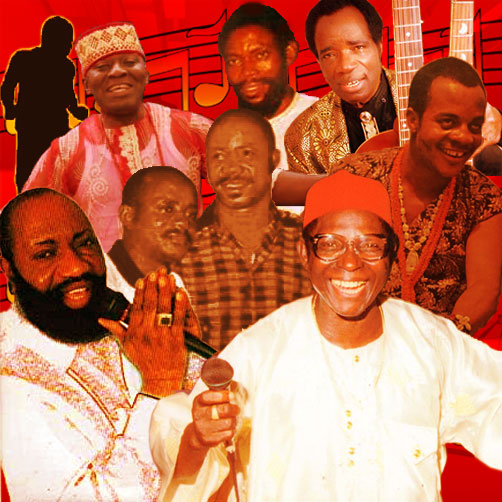History Of Highlife Music – The Origin
From the shores of West Africa emerges a musical genre that resonates with the soul and echoes the vibrant spirit of its people. Highlife music, with its infectious melodies, intricate rhythms, and deep cultural roots, stands as a cornerstone of the region’s artistic heritage. Embarking on a journey through the history, characteristics, social significance, and global influence of highlife, we uncover a musical tapestry that intertwines tradition and modernity, uniting communities and captivating audiences worldwide.
Origins and Evolution
The birthplace of highlife music is often traced to the coastal towns of Ghana and Nigeria during the late 19th century. Emerging as a synthesis of traditional Akan rhythms and European musical elements brought by colonialists and sailors, highlife quickly found its place in the hearts of West Africans.

In its early days, highlife was characterized by its fusion of indigenous melodies and Western instruments, such as brass bands and guitars. The genre’s name itself is indicative of its aspirational nature, with “highlife” connoting the idea of upward social mobility and the pursuit of a better life.
As the 20th century progressed, highlife underwent various transformations. It embraced influences from Latin America, jazz, and swing, further enriching its sonic palette. Pioneering artists like E.T. Mensah, the “King of Highlife,” and Osibisa, a band that blended highlife with rock and funk, contributed to the genre’s evolution. Highlife’s adaptability and propensity for fusion ensured its longevity and continued relevance in a changing musical landscape.
Musical Elements and Characteristics
Central to highlife’s allure is its captivating blend of musical elements. The genre’s rhythmic complexity draws from the intricate rhythms of West African percussion instruments, such as the kpanlogo drums and congas. This foundation is complemented by the melodic interplay between Western brass instruments and indigenous string instruments, such as the guitar and the palm wine guitar.
Highlife compositions often feature call-and-response vocals, creating an interactive dynamic between the lead singer and the chorus. The lyrics frequently touch upon themes of love, societal issues, and everyday experiences, making them relatable to a wide range of listeners. The danceability of highlife rhythms further amplifies its universal appeal, encouraging people to join in communal celebrations.
Cultural Significance and Social Context
Highlife music is more than just entertainment; it’s a mirror reflecting the values, hopes, and challenges of West African societies. The lyrics often delve into matters of social justice, colonialism, and the aspirations of everyday people. Through storytelling, highlife has historically been a vehicle for preserving oral traditions and sharing cultural wisdom across generations.
Beyond its lyrical content, highlife serves as a unifying force. In its formative years, it provided a space for diverse communities to come together and celebrate. Highlife events, often featuring energetic dancing and jubilant music-making, fostered a sense of belonging and camaraderie. Even today, highlife gatherings maintain their ability to unite people from different walks of life.
Global Impact and Influence
The influence of highlife music extends far beyond the shores of West Africa. In the mid-20th century, African artists began to incorporate highlife elements into their works, enriching their own musical traditions. Highlife’s impact on genres like Congolese rumba, Cape Verdean morna, and Nigerian Afrobeat is palpable.
Furthermore, highlife’s international journey saw it influencing global popular music. The groovy rhythms and vibrant melodies of highlife captured the attention of musicians worldwide. Artists like Paul Simon, in his groundbreaking album “Graceland,” and Afrobeat legend Fela Kuti, who infused highlife with political and social commentary, drew inspiration from highlife’s rich tapestry.
Challenges and Resurgence
While highlife remains deeply cherished, it has faced challenges in maintaining its prominence amid the evolving music industry. The emergence of new genres and technological advancements posed competition for the genre’s spotlight. However, a resurgence of interest in traditional music and the efforts of contemporary artists to infuse highlife with modern sounds have breathed new life into the genre.
Young artists are embracing highlife, reimagining its characteristics in innovative ways while retaining its core essence. This revival not only pays homage to the genre’s history but also ensures its continued relevance for generations to come.
Preservation and Future Prospects
As with any cultural treasure, the preservation of highlife music is crucial. Initiatives to document the genre’s history, educate younger generations, and provide platforms for highlife artists to share their craft are essential for its longevity. Collaborations between seasoned highlife musicians and emerging talents contribute to the genre’s continuity, creating a bridge between the past and the future.
Highlife Music – Conclusion
Highlife music, with its captivating rhythms and melodic richness, serves as a testament to the power of cultural fusion. Born from the interactions between indigenous traditions and colonial influences, highlife encapsulates the resilience and creativity of West African communities. Its journey from the shores of Ghana and Nigeria to the global stage showcases its ability to transcend boundaries and inspire artists across continents.
As we celebrate highlife’s past, present, and future, we recognize its role in uniting people, preserving traditions, and uplifting spirits. From the jubilant celebrations of its early days to the contemporary sounds that honor its heritage, highlife music remains a harmonious testament to the vibrant cultural mosaic of West Africa.
Want To Make Good Afrobeat Music?
We offer top notch online Afrobeat music making services here at Freaksonar. Find our services below :